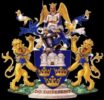

The button above is an affiliate link. If you purchase a book through my Bookshop.org link, I may earn a small commission—at no extra cost to you! Your purchase helps support independent bookstores. Thank you!”
REVIEW
Aldous Huxley’s The Island is his final novel, published in 1962, and serves as a utopian counterpart to his more famous dystopian work, Brave New World. While Brave New World critiques the dangers of technological advancement, consumerism, and totalitarianism, The Island presents a vision of an ideal society that balances modernity with spirituality, individualism with community, and progress with tradition.
Aldous Huxley’s The Island and his broader philosophical writings, including essays and lectures, often emphasize the importance of attention and living in the here and now. These ideas are deeply rooted in Eastern philosophies, particularly Buddhism, as well as in Huxley’s interest in mysticism and human potential.
Key Themes
- Utopianism vs. Dystopianism: Unlike Brave New World, which depicts a society controlled by technology and consumerism, The Island offers a hopeful vision of a society that has achieved balance and harmony. Huxley explores how a community can integrate technology, spirituality, and humanistic values without succumbing to dehumanization.
- Spirituality and Mindfulness: The Palanese practice meditation and use moksha-medicine to achieve higher states of consciousness. Huxley emphasizes the importance of self-awareness, mindfulness, and spiritual growth as antidotes to the alienation and stress of modern life.
- Education and Child-Rearing: Education in his Utopia is holistic, focusing on emotional, intellectual, and spiritual development. Children are taught to understand their emotions, cooperate with others, and appreciate the interconnectedness of all life.
- Environmental Stewardship: The islanders live sustainably, respecting the natural world and avoiding exploitation. Huxley critiques the destructive tendencies of industrialization and advocates for a more harmonious relationship with the environment.
- Individual Freedom and Community: Islanders value both individual freedom and communal responsibility. The society encourages personal growth while fostering a sense of collective well-being.
- Critique of Modernity: Through the cynical protagonists eyes, Huxley critiques the materialism, violence, and alienation of the modern world. The island serves as a contrast, showing how life could be lived differently.
Legacy and Relevance
The Island is often overshadowed by Brave New World, but it remains an important work in Huxley’s oeuvre. It reflects his lifelong interest in spirituality, psychology, and the human condition. The novel’s themes of mindfulness, sustainability, and holistic living resonate strongly in today’s world, where issues like climate change, mental health, and technological overreach are increasingly urgent.
Huxley’s vision in The Island is optimistic but not naive. He acknowledges the challenges of maintaining such a society in the face of external pressures (symbolized by the oil-hungry forces threatening the island). Ultimately, the novel invites readers to imagine a better way of living and to consider how they might contribute to creating a more balanced and compassionate world.
